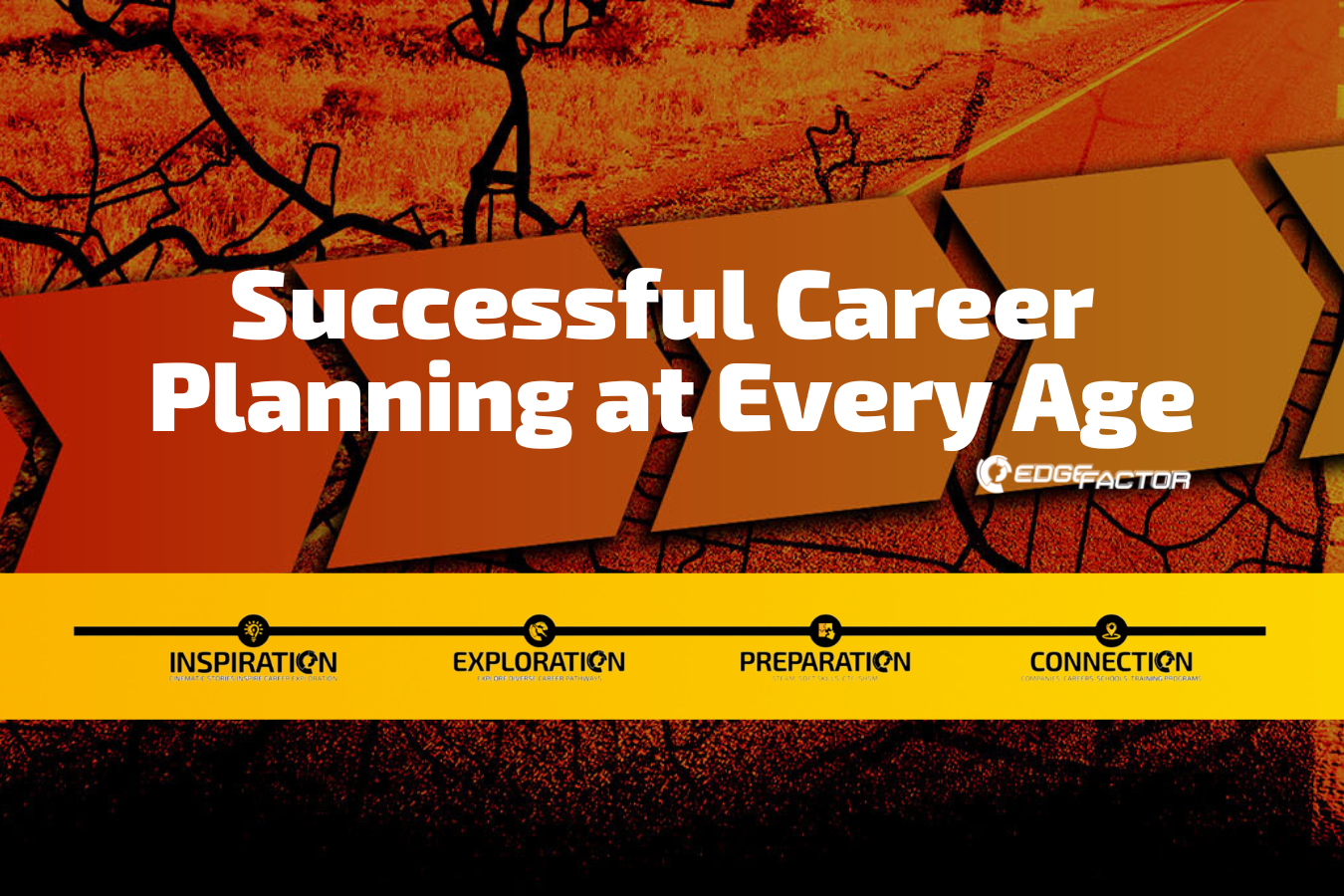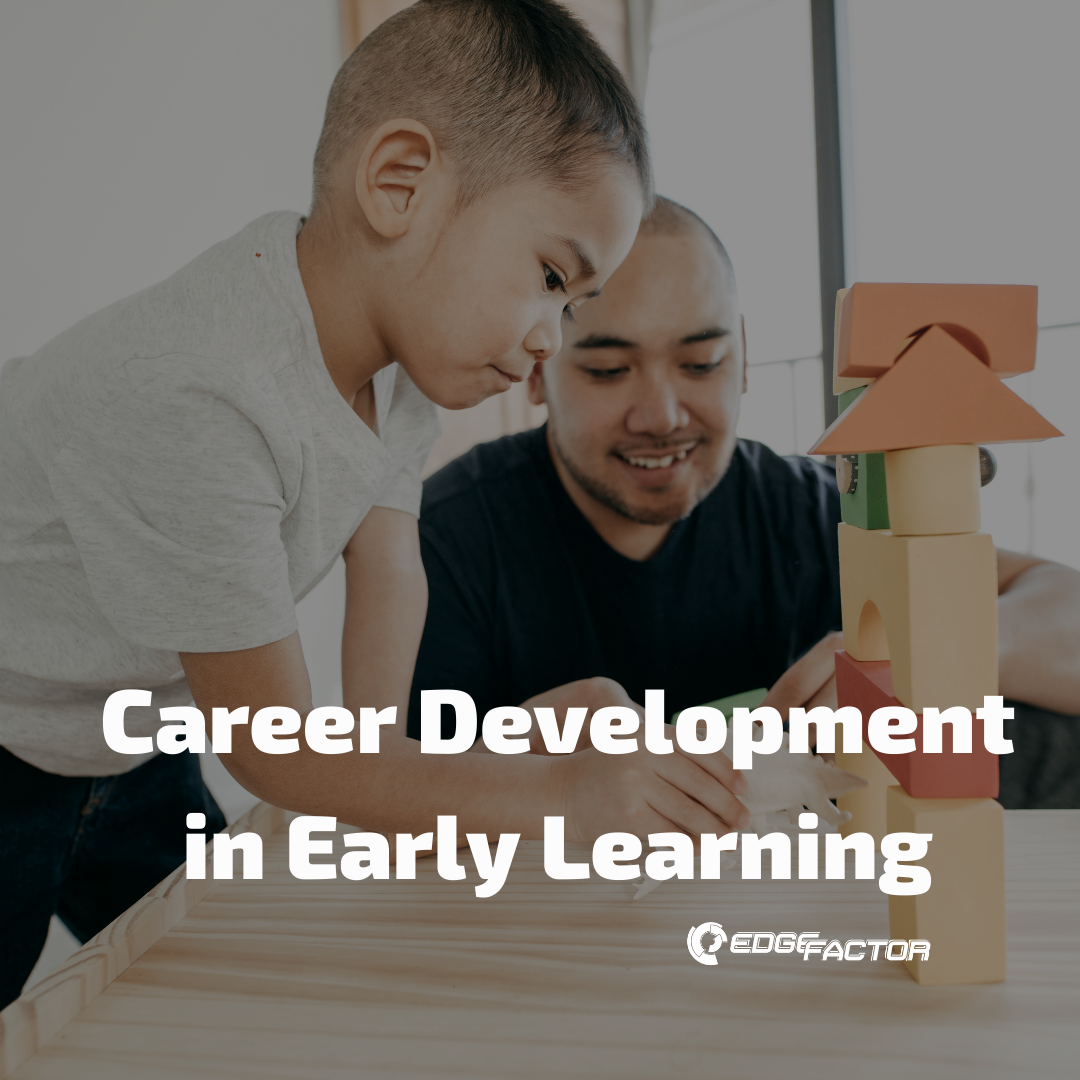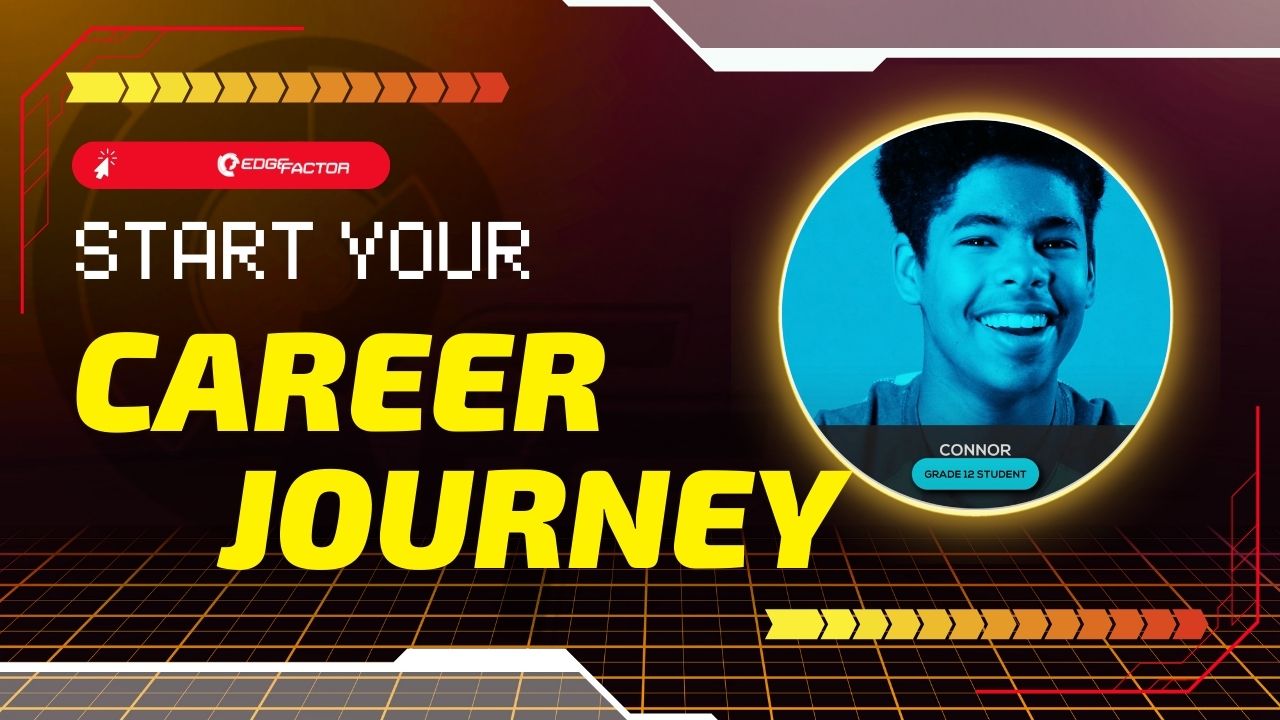
Typically, youth and young adults are the ones concerned about career development and their future. However, the roots of career development begin early in a child’s life. What do we mean when we talk about career development in early learning?
Adults will often reflect back to their own childhoods as the early beginnings of their interests and abilities. For adults, career development is about their past, the present, and the future. For children, it’s all about their present lives and their dreams for the future. These dreams are often based in fantasy, but are very real to children.
Should 3 - 8 year olds be thinking about careers?
Career development in early learning, from preschool, primary, and early elementary, is about helping them in the present, to develop a healthy sense of self and the competencies that will enable them to reach their full potential. Children of the future will have the same biological, social, emotional, and educational expectations of children of the past and present, but their worlds will be very different.
Career development, like physical or emotional development, is a lifelong process. Career development is not just about jobs, work, and careers, it’s about life stories. Children explore the world and begin to build possibilities for the present and the future. Their stories include a sense of self, life roles, skills, and knowledge, and are shaped by everyday events and experiences, their interests, attitudes, beliefs, and role models.
Developing Soft Skills at a Young Age
Early learners explore their environments through play. As they move through various life stages, they will have to adapt skills to cope with educational, career, and personal tasks. Adaptability, like other soft skills, begins developing in early childhood and continues to expand throughout their life adjustment and career planning. Other transferable skills like risk-taking, problem-solving, decision-making, planning, and overcoming obstacles and setbacks will also be the foundational skills they’ll need in their career exploration journey.
“Early childhood educators have a big role to play in the introduction of different career paths and allowing children to learn and recognize the importance that each “Community Helper” plays not only in economics but in the well-being of our communities,” said Early Childhood Educator, Paola Lecanda, “Educators can empower our students with knowledge and open up the umbrella of career paths and options.”
Connecting Early Learners Interests with Life Skills
Parents, and educators play an important role in helping early learners connect what they’re learning through play to life skills. However, the larger community, business leaders, and workforce development leaders are interconnected, and play important roles in the building of children’s beliefs about themselves and how they can impact the future of their community.
The team at Edge Factor and our partners take this role seriously. So we’re working to meet early learners where they are at and equipping educators and families with resources to empower children to develop life skills that will lead to future success.
Some of the resources Edge Factor provides for early learners’ career development includes aligning some of our media with Kidder Kits, working with Jamie McMillan to promote her coloring book, `”All the Kids on Builder Street”. As well, Edge Factor provides a Summer Camp toolkit that equips educators and families with access to media showcasing how Science, Technology, Engineering, Art and Math (STEAM) skills come alive in real world careers.
As Edge Factor continues to develop new tools and media to inspire career development from kindergarten through to retirement, we are excited to announce the launch of a new series for early learners called, Pet Factor!
What do Pets and Careers Have in Common?
The Pet Factor series helps early learners understand important soft skills, as they connect caring for animals with skills they will need in future careers. Each video introduces kids to skills, real life animals, and careers with vibrant, animated characters. The accompanying lesson plans help educators lead engaging in-class activities that teach kids about soft skills like problem solving, compassion, adaptability, communication, and more!
Each episode focuses on a superskill that the featured animal has and compares it to the superskills used in specific careers. In one of the Pet Factor episodes, children are introduced to a pair of degus at Rescue Ranch. As they learn about the degus' ability to adapt, they also discover how a truck driver, paramedic, and a plumber use adaptability on the job. The children are then invited to explore how they can begin to practice their adaptability superskill in their daily lives.
This series provides early learners with an opportunity to learn about diverse careers, and exposes them to diverse work roles. As they are beginning to develop interests, formulate attitudes, and express their preferences they begin to grasp and understand the interrelationships among the various jobs and occupations. This series supports parents and educators by introducing early learners to those transferable skills used in jobs and occupations within the family and larger community.
Edge Factor Premium Members can access this new series today!
Not an Edge Factor Member Yet?
If you are interested in learning more about an Edge Factor membership and the way it helps students and job seekers find real world opportunities, create your free account or register for an upcoming live webinar.
Questions? Feedback? Contact us.
Email: info@edgefactor.com or message us on the Live Chat. We’d love to hear from you.



.jpg)
.png)
.png)
.jpg)